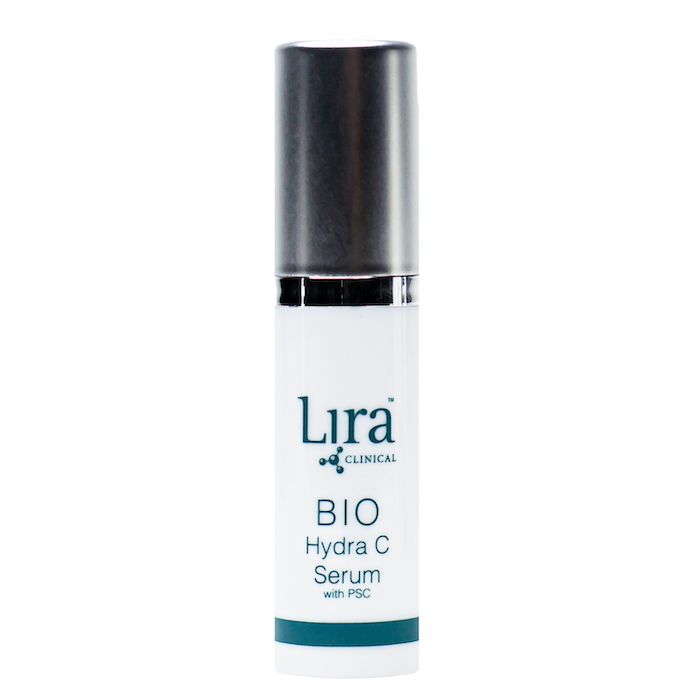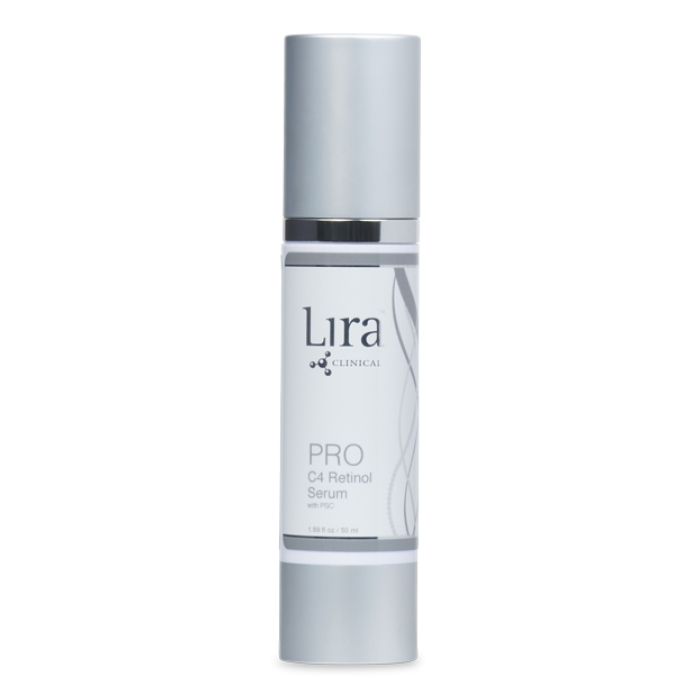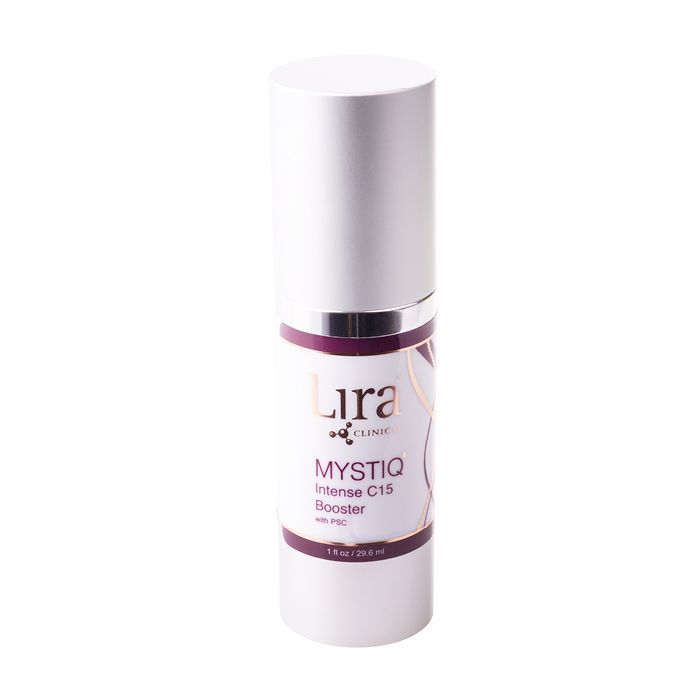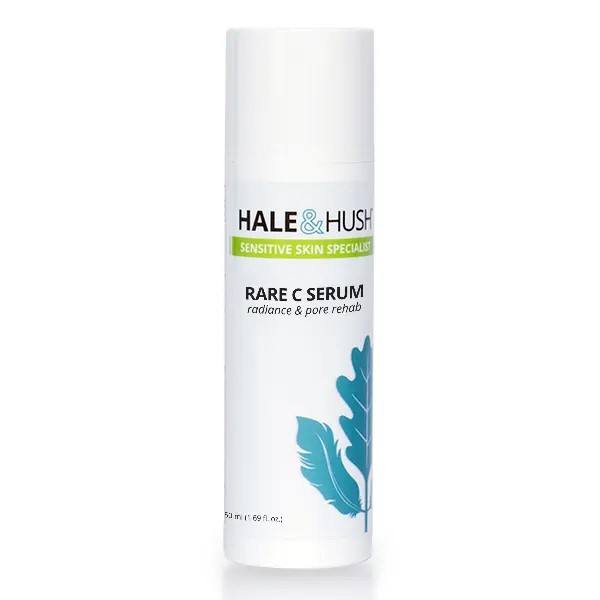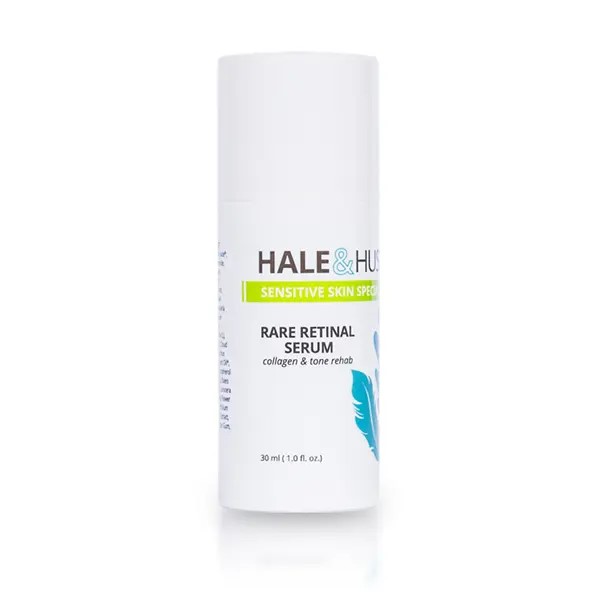March 23rd, 2022

Types of Vitamin C For Skincare
Vitamin C is a proven anti-aging and brightening ingredient popular in many skincare products. In 2020, Global Cosmetics News reported that Vitamin C had a 204 % increase in searches from the year before with over one million searches. In fact “What does Vitamin C do for your skin” was the most searched question. (1)
The body has L-Ascorbic or Vitamin C, but we do not produce it. This anti-oxidant comes from our diet. Vitamin C is required for the biosynthesis of collagen, (2) as well as antioxidant protection. (3) As more clinical studies are conducted, new finds on the benefits of Vitamin C are emerging. Of course, applying Vitamin C topically is the best way to deliver the benefits directly to the skin.
Vitamin C, when properly formulated at a pH less than 4 is a fantastic ingredient for normal skin types. Sensitive skin types should look for a higher pH amount such as 5-7, which is closer to the skin’s natural pH level in order to avoid the possibility of irritation.
You should also take into account what the concentration level of Vitamin C is in the product as well. Start with a low concentration of 10% for skin types with uneven skin tones or dullness of skin. If your skincare goal is to improve hyperpigmentation in the skin, you can use products with an increased amount such as 15% to 20%.
Modern formulations use sophisticated and designer forms of Vitamin C in order to reduce the chance of irritation, as well as blending several different types of Vitamin C for the desired result.
Types of Vitamin C
Ascorbic Acid
This form of Vitamin C is one of the most popular types. When looking at the label, this is usually listed as “ascorbic acid” or “L-ascorbic acid”.
When looking at clinical studies and medical articles, this is the most common form of Vitamin C studied.
3-0-Ethyl Ascorbic Acid (L)
Also known as Ethyl Ascorbic Acid, this form is the new generation of L-Ascorbic Acid, which has brightening effects, protects from DNA damage, and has anti-aging properties and assists in collagen production. This form is both water and oil soluble.
Sodium Ascorbyl Phosphate
This form of Vitamin C is less intense than ascorbic acid, keeping the benefits. This bioactive form of Vitamin C can penetrate your skin, and during the absorption process Sodium Ascorbyl Phosphate converts into ascorbic acid. This is extremely beneficial for those with sensitive skin or reactive skin because the process is less irritating.
Compared to Ascorbic Acid, many sensitive skin formulations use Sodium Ascorbyl Phosphate as it is a more stable form of Vitamin C, especially when exposed to air, light and water. You will find most serums using this form of Vitamin C will have higher concentrations than creams or lotions.
Magnesium Ascorbyl Phosphate
Also known as MAP, this form of Vitamin C is hydrating, water soluble and shelf stable. Magnesium Ascorbyl Phosphate is also one of the forms of Vitamin C that pair well with Niacinamide due to complementary pH levels.
Sodium Ascorbate
This form is very close to the makeup of Sodium Ascorbyl Phosphate. This form also falls under the category of mineral salts, as this form is the sodium salt of ascorbic acid. It is also important to note that this form converts to ascorbic acid when applied to the skin, which some have suggested that it is less irritating for skin and more stable when exposed to light and air.
Skin benefits include lightening skin discoloration.
Tetrahexyldecyl Ascorbate
This oil-soluble form of Vitamin C is also known as THD Ascorbate. The pH of this form is usually formulated below 5, which makes it less acidic than L-Ascorbic Acid.
Because this form is more stable than other forms of Vitamin C, it is less likely to oxidize when exposed to air and light. This form of Vitamin C is known for being able to penetrate the skin deepest of any form as well as being able to be absorbed the fastest.
Ascorbyl Tetraisopalmitate
(ATIP or as branded as VC-IP) Ascorbyl Tetraisopalmitate is commonly cited as the above Tetrahexyldecyl Ascorbate, as they have many similarities such as having the same molecular weight, but they are in fact each a unique chemical. (4)
This form of Vitamin C is clinically proven, stable, and oil-soluable Vitamin C derivative that effectively can be absorbed by the skin while converting to a Vitamin C form. Ascorbyl Tetraisopalmitateis the tetraester of ascorbic acid and isopalmitic acid. The benefits of this form include brightening effects, reduction of UV-induced cell & DNA damage, assists in collagen synthesis and is a potent antioxidant.
Ascorbyl Tetralsopalmitate
This form of Vitamin C is oil-soluble, rather than water-soluble so this form is found in skin care products with oil textures.
Tetrahexyldecyl Ascorbate (THD)
This form of vitamin C is very similar to the above Ascorbyl Tetralsopalmitate, but have different structures even though they have the same molecular weight. This form is oil-soluble, with formulations sitting below 5, less acidic than L-Ascorbic Acid so it’s more gentle and less likely to oxidize when exposed to air and light. (4)
Calcium Ascorbate
This form is another mineral salt of ascorbic acid and is often referred to as Ester C. Benefits from this form include collagen synthesis or promotion of collagen production, tissue and wound repair, reduces the appearance of fine lines, and helps with hyperpigmentation.
This form of Vitamin C has hydrating effects, while the calcium in the formulation makeup benefits bones, tissue and cartilage. It is also notes that it is effective at a neutral pH and non-irritating to skin.
Ascorbyl Palmitate
Ascorbyl palmitate is an ester formed from ascorbic acid and palmitic acid creating a oil-soluble form of vitamin C. Some claim that due to the fact that this form is oil-soluble, that the skin is more effectively able to absorb efficiently.
The form is also with milder activity making it another great form of Vitamin C for reactive skin or sensitive skin.
Things You Consider When Using Vitamin C In Your Skin Care Routine
Vitamin C should be used in your morning routine, it assists in protection when UV radiation is the highest. Take the time to let the serum absorb before going out though, because Vitamin C loses effectiveness in light.
Vitamin C should work in synergy with the rest of your skin care regimen. In order to make sure you have synergy, look at the active ingredients of all of your products.
I also advise the following to my clients:
- Do not use products with Benzoyl Peroxide with Vitamin C products, as it may oxidize the Vitamin C, you can always alternate these in your skincare routine
- Be very careful when using Vitamin C Serums with cleansers that have AHA’s in them. The result may be the ingredients are too active and cause dryness or sensitivities.
- I advise my clients if they wish to use a retinol (which is a BHA) in their routine, to use the Vitamin C in the mornings and Retinol at night- never use them at the same time because those active ingredients counteract.
- Peptides create a barrier in the skin and lock in moisture. But keep in mind not all peptides are vitamin C’s bff. For example copper peptides oxidizes the ascorbic acid and causes this to break down rapidly, keeping the ingredients from have skin benefits. Use Vitamin C in the morning and peptides in the evening.
The BFF’s of Vitamin C
Sunscreen is Vitamin C Serums Ultimate BFF. Vitamin C can not absorb UVA or UVB rays, however some research is suggestive that it can help lesson the damage. A study done in 2013 supports the use of a topical Vitamin C serum and sunscreen citing that sunscreen with Vitamin C resulted in a reduction of UVB induced erythema by 52% and sunburn cell formation by 40-60%. ( 5, 6)
Plant Stem Cells are rich in antioxidants which help partner with Vitamin C to assist in anti-aging as well as reducing the appearance of unwanted pigment and evens out overall skin tone creating a smoother healthier looking complexion.
Vitamin E is an ingredient that is commonly paired with ferulic acid to stabilize Vitamin C.
Hyaluronic Acid with Vitamin C can be a sound investment in your skin care routine. There is a order to application though. Apply a vitamin C serum on clean, dry skin so it can penetrate the skin cells, then apply hyaluronic acid on a damp face so it can pull water into the skin.
Which Vitamin C Serum Is For Me?
I carry four different types of Vitamin C serums in my practice, and believe me when I say, there is a difference in formulations. Skincare goals, skin type, concerns and sensitivities is all taken into account along with what products are currently being used in the skincare routine before I prescribe a serum to my clients.

Lira Clinical Bio Hydra C Serum
4 forms of Vitamin C, plant stem cells and botanical brighteners
Vitamin C serum formulated with organic aloe vera, topical probiotics and exclusive Mastiha resin. This serum helps to repair and protect against sun and environmental damage. Hydrate and strengthen skin while protecting against harmful free radicals with powerful antioxidant botanicals.
Who Could I Prescribe This To: all skin types, hyperpigmentation, sun damage, melasma
Lira Clinical Pro C4 Retinol Serum
Retinol, 4 forms of Vitamin C, Swiss Apple Plant Stem Cells, Alpine Rose Plant Stem Cells, and Sea Fennel Plant Stem Cells
Refine, renew, and restore skin beauty with this powerful Vitamin C and retinol combination. Reduce the appearance of fine lines, wrinkles, and manage acne with this multi-tasking, antioxidant packed serum.
Who Could I Prescribe This To: all skin types, anti-aging, acne prone, mature skin
Lira Clinical Mystiq Intense C15 Booster Serum
Concentrated Vitamin C serum that dramatically brightens with precise pigment reduction. Stimulate collagen while minimizing pore appearance and dark spots. Complete with Mastiha, 15% Vitamin C and Orange Plant Stem Cells.
A dynamic synergy of terpene-rich MASQ-tech™ with Cannabidiol delivers a new exclusive Entourage to soothe, strengthen and restore skin to its youthful state.
Who Could I Prescribe This To: All Skin types, Pigmentation / Brightening, Acne / Oily, Normal, Sensitive / Rosacea, Anti-Aging / Firming, Dry / Dehydrated
Hale & Hush Rare C Serum
Rare C Serum features a highly bio-available form of Vitamin C, which strengthens collagen and brightens the complexion.
Hale & Hush are the sensitive skin experts for a reason. Rare C is formulated with a gentle vitamin C with a pH of 4.28 and 7-8% concentration. This makes it a great choice for my sensitive skin clients.
Who Could I Prescribe This To: All Skin types, Pigmentation / Brightening, Acne / Oily, Normal, Sensitive / Rosacea, Anti-Aging / Firming, Dry / Dehydrated
Vitamin C may not be for everyone.
Although Vitamin C as a powerhouse antioxidant may be effective, it could be harsh for those with very sensitive skin or reactive skin. This is because Vitamin C is a mild acid and features exfoliating properties which could lead to skin irritation.
A gentler alternative to vitamin C is niacinamide. Both Vitamin C and Niacinamide are antioxidants. They can assist in decreasing oxidative stress and damage from environmental factors, increase collage production, reduce fine lines and hyperpigmentation. However the main difference between the two is Niacinamide is considered to be more efficient in increasing hydration, and Vitamin C is more effective as a brightening agent. Niacinamide is a form of Vitamin B3 which is gentle on the skin and has been proven to assist in improving barrier function.
Hale & Hush Rare Retinol Serum
Hale & Hush delivered a fantastic formulation for those that can not use Vitamin C products, but are able to use Retinol with Niacinamide.
Featuring IconicA®, the latest optimal (and most biologically available) form of Vitamin A, merged with premier anti-glycation ingredients, this serum succeeds supremely in anti-wrinkle, anti-redness and pro-radiance results without any of the typical negative side effects of other retinoids, such as retinol.
Who Could I Prescribe This To:
Sensitive / Rosacea, Anti-Aging / Firming, Dry / Dehydrated
References:
- https://www.globalcosmeticsnews.com/skincare-gets-savvy-do-increased-ingredient-google-searches-spell-a-new-future-for-the-consumer-market/
- https://ods.od.nih.gov/factsheets/VitaminC-HealthProfessional/
- https://www.researchgate.net/publication/319347502_The_Roles_of_Vitamin_C_in_Skin_Health
- https://realizebeauty.wordpress.com/2017/03/27/dont-get-your-oil-soluble-vitamin-c-mixed-up/
- https://www.webmd.com/beauty/ss/slideshow-benefits-of-vitamin-c-for-skin
- https://www.ncbi.nlm.nih.gov/pmc/articles/PMC3673383/

